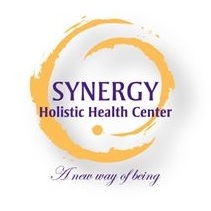The World Health Organization estimates that 47 million people live with dementia. As people are living longer, these numbers are expected to increase to approximately 75 million affected by 2030. Although this number is extremely high, we need to remember that this kind of complete loss of memory is not a normal part of the aging process. Plus, with so many people affected, the economic burden of this growing health concern is high – an estimated $818 billion USD annually. It’s no wonder that an increasing number of health practitioners and health-minded people are seeking ways to protect against memory loss.

Protect Your Memories
There are many health tools promoting their ability to strengthen cognitive function; however the efficacy behind some of these claims can seem unclear. It can feel like an overwhelming task to find the best ways to protect against memory loss. However, today we’re providing some clarity on the subject and delving into the practice of meditation, with its links to protecting against memory loss. Two primary ways meditation may help is through its associations with cortisol level reduction and increased brain connectivity.
Meditation Reduces Cortisol Levels to Benefit Memory
We’ve all heard about cortisol and the many roles it plays in formulating the stress response. However, what is less well known is this hormone’s ability to alter the volume of the hippocampus, an important brain structure essential for learning and memory. Repeated cortisol exposure from stressful events has been linked to reductions in hippocampal volume, which likely stimulates memory loss. However, reversing this loss, and even increasing hippocampal size, is possible. Through brain imaging, studies have shown that experienced meditators have significantly larger hippocampi than non-meditators. It is possible that meditation’s ability to reduce cortisol levels acts as a protective factor against hippocampal shrinkage and memory loss.
Meditation Improves Brain Connectivity
Another mechanism through which meditation may promote memory function is through increased brain connectivity. Brain connections are important as they enable actions to proceed efficiently, including the ability for new experiences to be created into memories. A major component for proper connectivity is the flow of blood in the brain, providing a supply of nutrients and oxygen thereby promoting cognitive function. One study followed subjects during an eight-week program and concluded that after a treatment of 12 minutes of meditation per day, subjects had significantly increased measures of cerebral blood flow and improvements in cognitive function.
Promote Brain Health
Even in a healthy population, cognitive decline can begin after 20 years of age, meaning it’s never too early to start incorporating brain-health activities into your daily life. Considering that memory loss and dementia are global concerns and have such negative impacts on individuals, families and society, prevention is incredibly important. Mindfulness meditation might be one effective approach, and being that it is a holistic, low-cost, and scientifically-backed alternative, there’s no better time than the present to get started.
These are extracts from The Science of Meditation Report from UNYTE. UNYTE: Biofeedback and interactive meditation
We at Synergy have been teaching meditation since before our Synergy doors opened. We started years ago in public libraries, schools, corporations, and with wellness support groups. We have found meditation to be the cornerstone of several of our holistic practices.
Our Mediation Services | View
Contact us (859-525-5000) for more information -or- request and appointment!
—
 About Synergy Holistic Health Center
About Synergy Holistic Health Center
SYNERGY Holistic Health Center supports you in your journey towards health, happiness, and wholeness, and to provide a safe space for that transformation to unfold. Our commitment is to honor you and your choices, and to provide guidance, education, and skills to support your goals so that you can experience your optimum health and highest personal potential.
> Learn More

